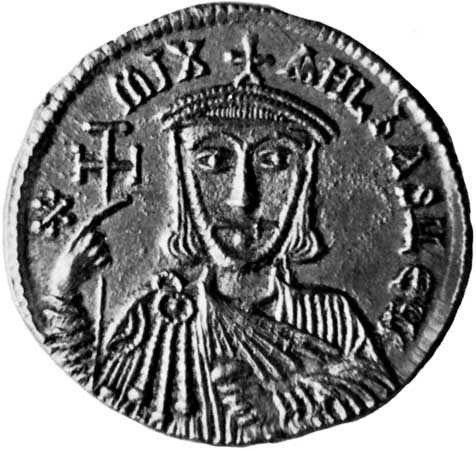Michael II
Byzantine emperor
born , Amorium, Diocese of Asia
died Oct. 2, 829
 Byzantine emperor and founder of the Amorian dynasty who attempted to moderate the Iconoclastic Controversy that divided 9th-century Byzantium.
Byzantine emperor and founder of the Amorian dynasty who attempted to moderate the Iconoclastic Controversy that divided 9th-century Byzantium.Rising from humble origins, Michael became a military commander. He was a comrade-in-arms of Leo the Armenian, who later became Emperor Leo V (813). When, in 803, Bardanes Turcus and Nicephorus I were fighting over the imperial throne, Leo and Michael at first supported Bardanes but later deserted him and joined the cause of Nicephorus. Years later, after Leo had ascended the throne, Michael incurred the suspicion of his former friend and was imprisoned on a charge of treason. On Dec. 24, 820, he was sentenced to death, but on the following day, his partisans assassinated Leo and proclaimed Michael emperor.
Shortly before Michael ascended the throne, however, a soldier named Thomas the Slav raised a rebellion, and it was not until the end of 823 that Michael succeeded, with help from the Bulgars, in suppressing this revolt, which so weakened the resources of the empire that it was unable to resist later Arab onslaughts. The Arabs conquered Crete (826 or 827) and parts of Sicily (827–829).
Although Michael was an Iconoclast (a member of the party opposed to the use of religious images, or icons), in practice he followed a policy of toleration. He even freed prisoners who had been jailed for their devotion to icons, restored other churchmen who had been deposed and exiled for that same reason, and eased the condition of detention of former patriarch Nicephorus and Theodore Studites. Hoping to find support for his policies in Rome, Michael pursued a policy of alliance with the Carolingian emperor, Louis I the Pious, who had influence over the pope.
- Pierre-Daniel Huet
- Pierre Dansereau
- Pierre d' Aubusson
- Pierre de Bocosel de Chastelard
- Pierre de Brantôme
- Pierre de Brazza
- Pierre de Bérulle
- Pierre de Fermat
- Pierre de Larivey
- Pierre de La Rue
- Pierre de Ronsard
- Pierre Drieu La Rochelle
- Pierre Dubois
- Pierre Duhem
- Pierre Dupuy
- Pierre Elliott Trudeau
- Pierre-Emmanuel-Albert, Baron Du Casse
- Pierre-Emmanuel-Albert Du Casse, Baron
- Pierre-Ernest Weiss
- Pierre-Esprit Radisson
- Pierre-Eugène-Marcellin Berthelot
- 1st Viscount Cross, Richard Assheton Cross
- 1st Viscount Gladstone, Herbert John Gladstone
- 1st Viscount Goschen, George Joachim Goschen
- 1st Viscount Hailsham of Hailsham Hogg, Douglas McGarel